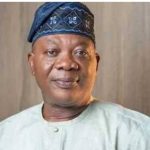Is Nigeria sitting on a keg of gunpowder powder?
A hungry man, they say, is an angry man. Between August 1 – August 10, 2024, Nigerian youths took to the streets, they were hungry and angry. It was a 10 day protest, demanding Nigerian government and their leaders to live up to their responsibilities, fuel subsidy removal, economic hardship, hike in electricity tariffs and customs duties, hunger and insecurity among others.
Government officials panicked, making all efforts to stop the protest, security agencies were on red alert throughout the nationwide protest, looters cashed in on the peaceful protest to loot, cart away and destroy individuals and government properties. People died.
The right to peaceful protest is constitutionally provided. Section 40 of the 1999 Nigerian Constitution, guarantees citizens’ rights to assemble and associate with other persons to protect their interests. So, Nigerians gathered for ten days to protest over the rising cost of living.
I went to the market recently in Lokoja to buy beans. The weevill-free beans costs N3,500 per mudu (bowl used for measuring), while the other type, with some weevils and mixed with some bad beans goes for as much as N3,200.
While waiting for the POS machine to pay, a woman looking lean, obviously from the high cost of living bought a tin of beans (liquid tin milk), for N350. What will a tin of beans put on the table? What is her family size? Probably she would add sweet potatoes for her family to be able to eat. She was looking dejected.
She was sad, she heaved a sigh not of relief but uncertainty, shook her head, paid and was about to leave when I told the mallam selling the beans to give her, half a mudu. She was stunned, almost on her knees to appreciate my kind gesture. I was emotional. When did we get to this point? How bad is it going to get? Will there be light at the end of the tunnel? Earlier before extending the gesture, I had bought a mudu of rice for another woman whose situation was not different. I had to run away from the market. People were not smiling. Pathetic faces all around. So much bargaining going on.
This explains why Nigerians took the protest personal all in an attempt to drive home their demands. Beans and bread which was the food of the poor man is no longer within their reach. Same with garri and cassava. The lowest point of life has become very expensive. The purpose of protest is to influence public opinion or government policy and to bring about change for the good of all.
Right from colonial rule, there have been protests. History tells us that 1929, 6 December, was the Aba Women’s Riot in Eastern Nigeria; women protested against tax levies imposed by the colonial government. It led to the death of many of the women. In 1947, 27 November, Abeokuta Women’s union revolt. It was said that Funmilayo Ransome-Kuti led the protest to the Alake’s Palace, in Abeokuta. The women protested against an unfair tax regime which led to the abdication of the then Alake of Egbaland, Oba Sir Ladapo Ademola II and the abolition of the tax regime by the colonial government. 1978, 17 April, Ali Must Go protest named Segun Okeowo and Ahmadu Ali, involving Universities nationwide. A 50 kobo increase in student fees sparked the protests. In 1989, 24 May – June, was the Anti-SAP riots by National Union of Nigerian Students Universities nationwide. The protests occurred as a result of the effects of the International Monetary Fund (IMF)-imposed Structural Adjustment Program (SAP), introduced by the Ibrahim Babangida-led government.
In 1993, June 12 protests by Nigerians in South West Nigeria, the protests occurred as an aftermath of the annulment of the June 12, 1993 Presidential elections by Ibrahim Babangida. 2012, 2-14 January, the occupy Nigeria protest when Nigerians (including the diaspora) protested against the removal of fuel subsidies and eventual price hikes by the Goodluck Jonathan government. It led to the reinstatement of the subsidy and a review of the Federal Government spending. 2020 witnessed the End SARS protest where Nigerians (including the diaspora), protested against police brutality meted out by a now-defunct specialised police unit known as the Special Anti-Robbery Squad (SARS).
The recent being the August 2024 protest by Nigerias (including the diaspora). The nationwide protest was over the rising cost of living since the beginning of President Bola Tinubu’s administration in May 2023. The protests were mainly over fuel subsidy removal, hike in electricity tariffs and customs duties, hunger and insecurity among others.
President Tinubu’s address to the nation in response to the protest met with series of reactions. Nigerians were aghast. Fuel subsidy was not restored. Hopes were dazed. Other strategies and programs set up by President Tinubu and his team, did not go down well with some Nigerians. Nigerians are still angry.
Speaking on the present situation in Nigeria, former President Olusegun Obasanjo, while receiving six members of the House of Representatives at his Olusegun Obasanjo Presidential Library in Abeokuta, warned that Nigeria was sitting on a keg of gunpowder that could explode if the nation fails to take courageous and decisive steps to address its numerous challenges. He described Nigeria as a nation that takes two steps forward, one step aside, and four steps backward. He described the demands of the protesters as very legitimate, stating that the government should heed the people’s grievances and cease pretending that all was well. “They are frustrated, hungry, angry, and unemployed, and they deserve to be heard.”
The Sultan of Sokoto and Chairman of the Northern Traditional Rulers Council, Muhammad Sa’ad Abubakar III, while speaking at the 6th Executive Committee Meeting of the Northern Traditional Rulers Council in Kaduna sometime in February 2024, also warned that Nigeria is sitting on a keg of gunpowder as a result of the economic and security challenges confronting the country.
I recently watched a video put out by one Mr. Nnaemeka Onyeka Obiaraeri, a Financial Engineer, Investment Banking Executive and Development Economist, on his X handle, that x-rayed Nigeria’s financial and economic situation.
According to him, President Tinubu, inherited N77trillion national debt, $43billion external debt, N27trillion domestic debt and N7trillion interest on it. He added that the crude oil which is coming into the country will not be enough to pay Nigeria’s debt. Nnaemeka asked a valid question, “what are we using to defend the naira, how do we get dollar to pay back the loan?”
He, however, had some pieces of advice for President Tinubu. “Tackle insecurity to allow farmers go back to farm and into productive activities, clear out all appointees of Former President Muhammadu Buhari and bring in good hands. You can’t win with players who are losers. You saw a team that presided over loot of our crude oil on an annual basis of $22 billion for five years, what you should have done to protect yourself as a leader, would have been to clear out the stable from the NNPC to NNDPRA (Nigerian Midstream and Downstream Petroleum Regulatory Authority). Because they will not protect the interest of Nigeria. You can’t keep a team that created the debt we are in. You can’t win the Champions League with incompetent players. Step on toes Mr. President…get rid of anybody who was part of Buhari’s oil and gas industry, diversify the economy.”
Something has to be done and fast. Tackle Nigeria economic challenges that threatens its growth prospects and stability, terrorism, kidnapping, insecurity, bring in sincere technocrats like the likes of Dr. Ngozi Okonjo-Iweala, sweep out unpatriotic, corrupt Nigerians from the oil and gas sector. Bring back our subsidy for now until measures, strategies are put in place to cushion the effect of subsidy removal. The buck stops at your desk Mr. President. Of course, there is no magic wand, Rome was not built in a day. However, government needs to add value to the people and make people friendly policies.







